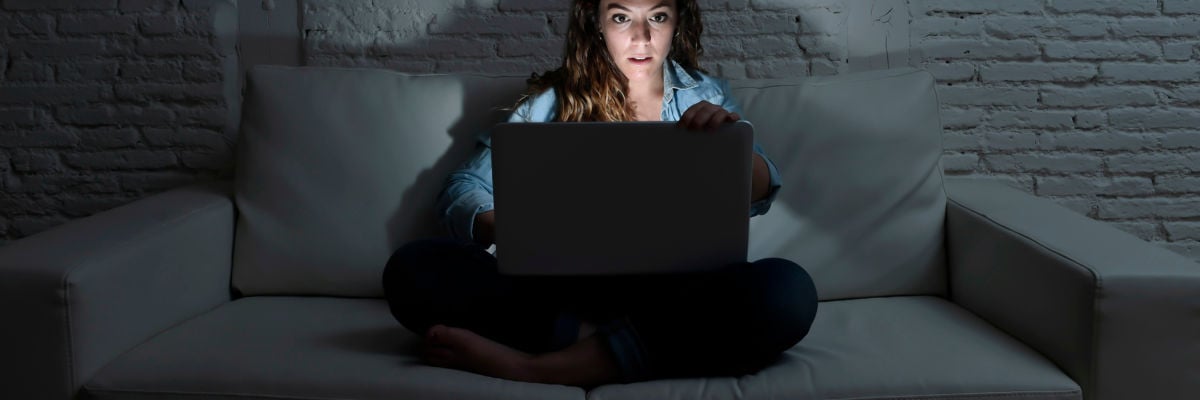
On March 15, the Holy Father announced he would consecrate Russia and Ukraine to the Immaculate Heart of Mary on the solemnity of the Annunciation (March 25). And of course the Catholic internet exploded with endless explanations of the consecration of Russia, as well as speculation related to Pope John Paul II’s consecrations, or possible lack thereof, and the prophecies of the seers at Fatima. (There are many good resources to look into for more information on the consecrations.)
The Gospel passage for Mass the following day was Matthew 20:17-28, where the mother of James and John, also known as the “sons of thunder,” asks Jesus for a special favor. She wants her sons to sit “one at your right and the other at your left” in the glory of his kingdom. In what follows, I do not intend to make some definite exegetical interpretation of the Gospel in light of current events. But I found the providential placement of this passage a useful point of reflection.
What is mama Zebedee up to? In a way, she wants to know the future. She wants a guaranteed destiny. In a lot of ways, she is not very different from many other moms. Back when I was a boarding school chaplain, I often encountered parents who thought that if they followed a precise checklist—sometimes a checklist provided by an expensive college admissions consultant who barely even knew the child—then their kid would get accepted to Harvard, get an athletic scholarship at a Division I athletic institution, live the life of their dreams, you name it.
At best, these parents were trying to help their children succeed. There’s nothing wrong with wanting your kid to prosper in the world. But at worst, such parents misplaced legitimate parental ambition in favor of a kind of worldly myopia. “Success,” in such a world, becomes more and more narrowly defined; indeed, it rarely has anything to do with spiritual or moral goods, which Christian civilization used to understand as being intimately connected with happiness. Parental ambition becomes a desire to control history, to remove the pesky obstacles of free will and . . . well, natural human flourishing.
So here’s my connection to link up Mrs. Zebedee, Russia, and Fatima. We cannot know the future. We know, in a fundamental way, the end of the story, but it is simply not given to us to know everything that happens in the middle. Nor is it our job, as the Church, to manage history. This error—and it is an error, one that is weirdly shared by both progressive mainline Protestants and certain integralist Catholics—is the idea that the Church’s job is primarily to make the world a better place, to control history or manage destiny. That might mean, in a “progressive” version, coercing everyone into enlightened wokedom, micromanaging the world until every last microbe reflects the latest popular value, and every memory that stands opposed to that value be erased. In a conservative version, it might mean coercing everyone into a legalistic simulacrum of Christianity in which free will is gradually scrubbed clean of all error and all human action is tested by a universal calculus of moral casuistry.
Come to think of it, those two versions of historical triumph sound pretty similar to me.
We are all tempted to this control of the future. We all want to know what will happen, and we want to know that we were instrumental in making it happen. We want to know that we did the right thing at every moment.
I grew up in a form of dispensationalist premillennial Protestantism where predicting the future and reading the “signs of the times” was everyone’s favorite pastime. Novels were written; songs were sung; films multiplied. It was all quite thrilling, because it gave one a sense of control and secret knowledge. Part of my eventual gravitation to Catholicism was the Faith’s commitment to public revelation and teaching, to concrete, personal, apostolic authority to preside over limitless private judgments. Imagine my shock when I became Catholic and saw almost the same kind of apocalypticism, only this time, the endless speculation wasn’t just about Scripture; it was also about a whole series of private revelations and the historical activity of popes.
In the end, free will can seem a huge burden. We would much rather have a universal playbook where God (or The Universe) provides a step-by-step method for achieving the perfect result. If Google Maps can notice a traffic jam coming up and send us in a new direction, why can’t the Holy Spirit give us a hint or two about whether we should sit in the third or the fifth pew, or attend the eight-o’clock or the eleven-o’clock Mass, in order to maximize our spiritual benefit from Sunday morning?
But this is a delusion that we have to let go. I’m not saying the consecration of Russia to Mary is a bad thing, or that prophecies are bad things, or that no one should be interested in ordering the world to justice and goodness or making good decisions about what to do in an ordinary day. These are all perfectly normal expressions of Christian hope and action in the world. But the first vocation of Christian people isn’t the management of history through kingly power, but rather the ordering of individual lives toward holiness. That is, of course, the central aim of Lent, and it is what the Catechism describes as the basic way that individual Catholics embody the kingly ministry of Christ: through exercising a lordship over their own bodies and their own wills (908).
There are things that we can control, and there are things that we cannot control. If we cannot recognize the difference, we will never be able to take up our cross and follow Jesus into fellowship with God the Father. And if we cannot do this ourselves, we certainly cannot expect anyone in the world to follow.


